ATD Blog
Transform Any Team of Experts Into an Expert Team: Part 2
Thu Feb 01 2018

The previous blog in this series discussed existing research on how to help a team of individual experts become an expert team. In Part 1, we concluded that learning and performance interventions increase team performance, but that it wasn’t particularly clear what these interventions should look like. Further examination is required.
First, in order to identify where a team “is” (in other words, its current level of performance), you need to start with analyzing the team’s expected performance outcome(s), as well as the competencies needed to achieve that performance outcome. You also need to be aware of the phase that the team is in (based on the TEAM model in Figure 1).
Figure I. Essentials of the TEAM Model
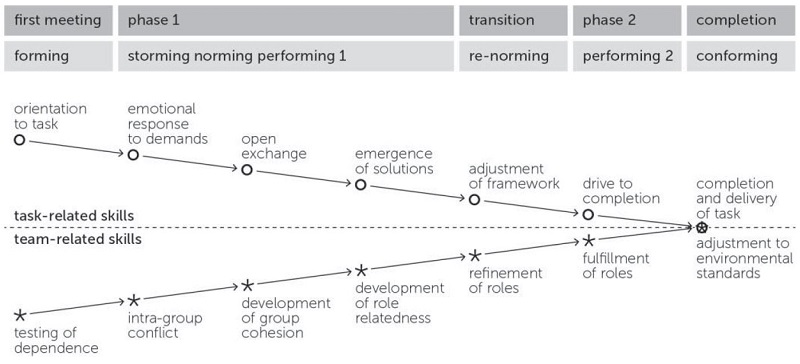
Source: Team Effectiveness and Team Development in CSCL, Fransen et. al
Now, let’s assume the analysis is done and you’ve explicated the task or teamwork gaps that the team needs to strengthen. To make the tools and examples more concrete, we’ll use the following goal: Improve the collaborative decision-making process during a project.
Let’s take a look at how this would play out:
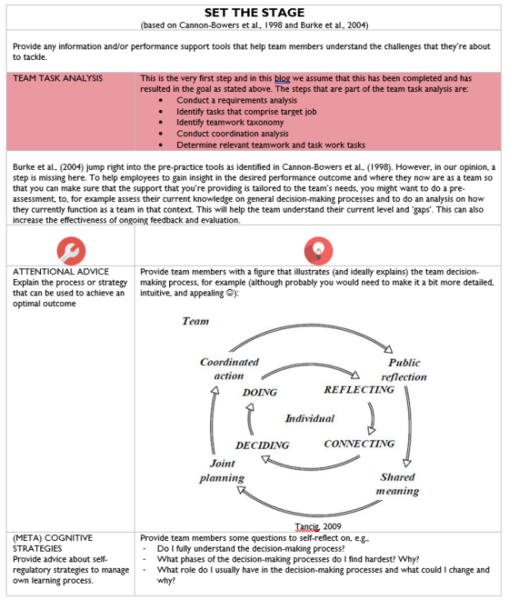
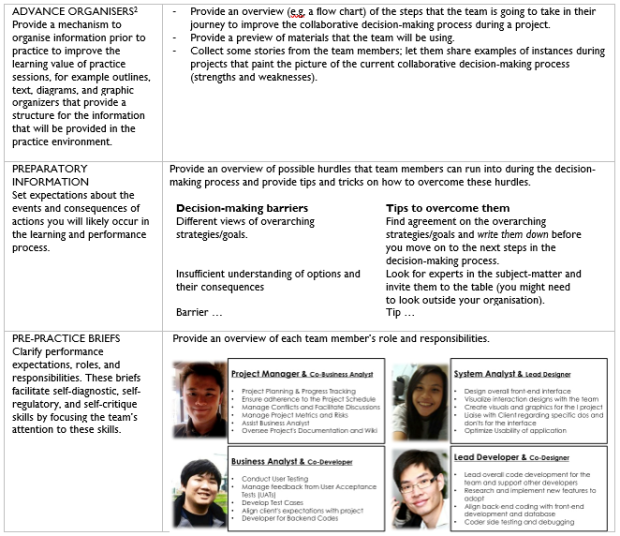
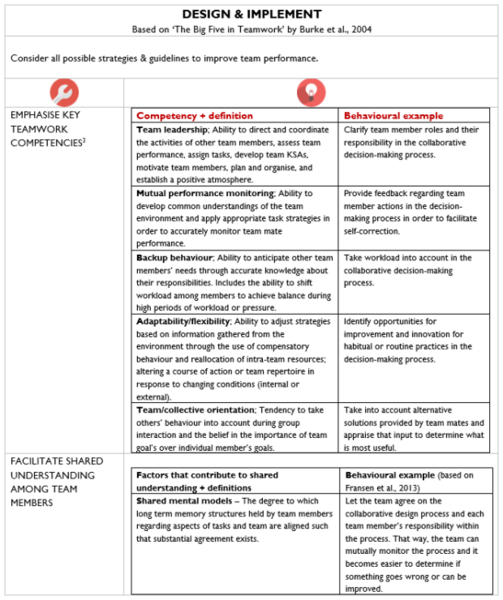
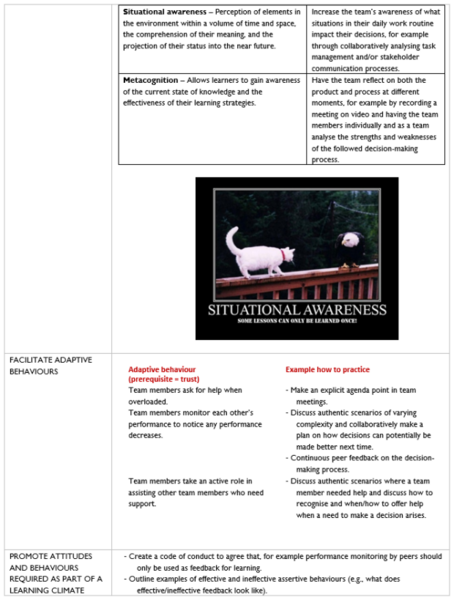
Last but not least, you need to regularly and systematically evaluate the team’s journey towards becoming an expert team. This evaluation needs to be multi-dimensional. It’s impossible to spell out a concrete example without a real-world context, however, you can – for example – use Will Thalheimer’s book Performance-Focused Smilesheets to create valuable questions for all team members to (repeatedly?) answer. In addition to this subjective way of evaluating, you also need to find a way to measure team outcomes more objectively, such as through structurally monitoring decision-making outcomes.
We need those expert teams badly and you can help them to get where they need to be.
Further Reading
Ausubel, D.P., (1968). Educational Psychology: A Cognitive View. New York, NY: Holt, Rinehart and Winston.
Burke, C.S., Salas, E., Wilson-Donnelly, K., & Priest, H., (2004). How to turn a team of experts into an expert medical team: guidance from the aviation and military communities. Quality & Safety Health Care, 13, i96-i104.
Fransen, J., Weinberger, A., & Kirschner, P.A., (2013). Team effectiveness and team development in CSCL. Educational Psychologist, 48, 9-24.
Salas, E., DiazGranados, D., Klein, C., Shawn Burke, C., Stagle, K. C., Goodwin, F., & Halpin, S. M., (2008). Does team training improve team performance? A meta-analysis. Human Factors: The Journal of the Human Factors and Ergonomics Society, 50, 903-933.
Thalheimer, W., (2016). Performance-Focused Smile Sheets: A Radical Rethinking of a Dangerous Art Form. Work-Learning Press.
